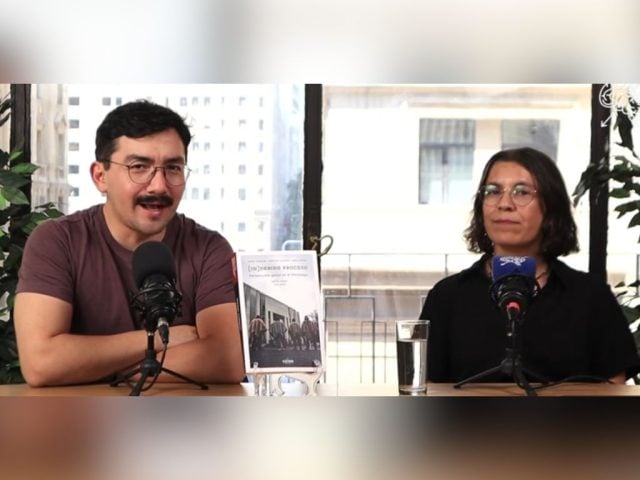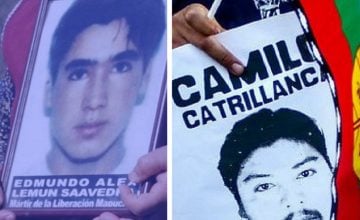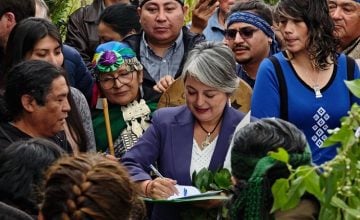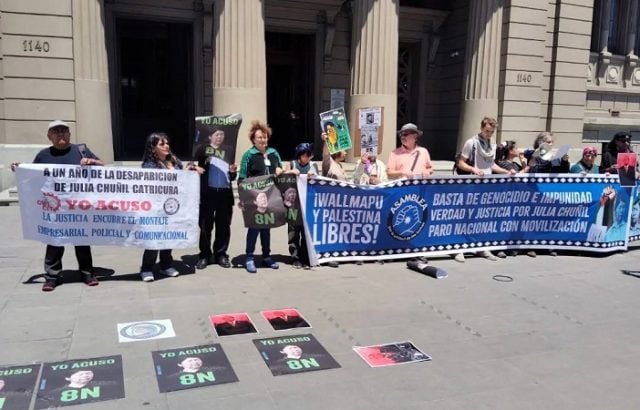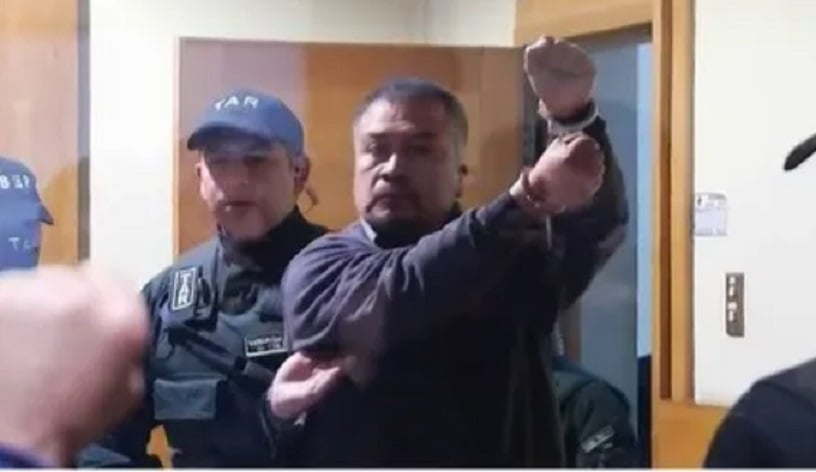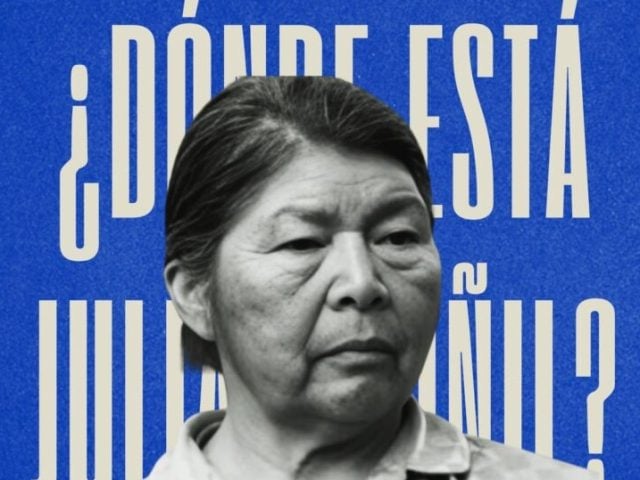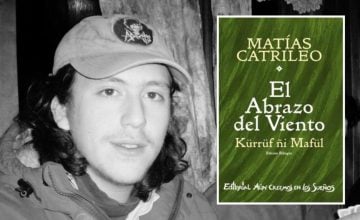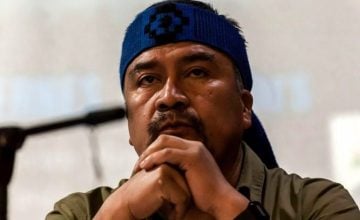Original article: El trato diferenciado de la justicia chilena en el libro «[IN]DEBIDO PROCESO: Persecución penal en Wallmapu»
By Morín Ortiz
The legal language can be challenging for those not familiar with the legal field. This challenge is addressed by the authors of the book [IN]DEBIDO PROCESO: Criminal Prosecution in Wallmapu, who conduct a thorough analysis of emblematic cases involving the Mapuche people investigated by the Chilean Criminal Justice System.
The book illuminates the roles of different stakeholders, laws, and actors to help comprehend the complexities of the relationship between the Chilean State and the Mapuche People through historical perspectives and legal documents. It has been edited by historian and anthropologist Martín Correa.
Cases occurring south of Biobío, such as the killing of 17-year-old Alex Lemun, the first Mapuche killed by police forces in Chilean democracy; the secret witnesses at Quino Toll and Tur Bus; the persecution of Lof Muco; the Luchsinger Mackay case; the criminalization surrounding the defense of the Río Pilmaiquén; the Huracán Operation case; and the fabrication of evidence against Mapuche leaders, have led to investigations involving both the Prosecutor’s Office and Carabineros for their roles in a trial still ongoing eight years after the incidents. These are just some of the processes discussed in the book.
“We want this book to be read not only by lawyers but also by everyone who has the right to know how a rule of law operates, how due process functions, and why it fails regarding Mapuche leaders accused numerous times without evidence, and those who have been victimized and abandoned by the State,” stated lawyer Karina Riquelme, who currently represents the family of Mapuche leader Julia Chuñil, missing since November 2024 in Máfil.
In the words of lawyer Sebastián Saavedra, current president of CIDSUR, their goal was to present an accessible narrative of what occurs in courts, “situations that are often only perceived through the press, which historically has presented a biased view, only showing formalizations or arrests while remaining silent about trial outcomes, which mostly consist of acquittals or minimal sentences served in freedom.”
This rigorous analysis, supported by judicial records, judgments, and court rulings, reveals that “there is unequal treatment when a Mapuche is a victim compared to when they are accused. When accused, exceptional laws like the Anti-Terrorism Law are invoked, and extensive media coverage occurs regarding the impact on private property. However, when a Mapuche is the victim of serious crimes such as illegal detention or death, these cases are quickly set aside.”
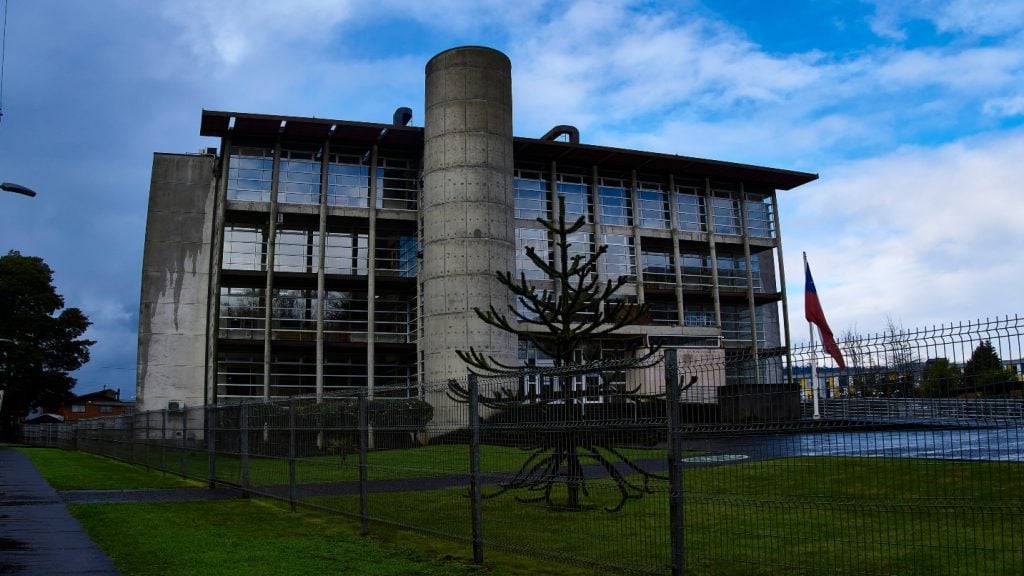
The book spans eight chapters and 338 pages and includes forewords by Hernando Silva, co-director of the Citizen Observatory, and Myrna Villegas, Doctor of Law and academic at the Universidad de Chile, who notes that «there has always been an attempt to find an ‘illicit association’ among indigenous peoples when they try to reclaim what is theirs. Shortly after the Chilean Penal Code was established (1876), sorcerers from Chiloé were prosecuted (1880) for this crime, accused of being part of the Recta Provincia, under which some offenses were reportedly committed. Is this merely a coincidence or a historical repetition of using legal tools when there is fear of the ‘other’ organizing outside the State to defend and/or reclaim what rightfully belongs to them?»
For Dr. Myrna Villegas, this book serves as “an urgent call to critically review how criminal law is applied in a context of historical inequality and to understand that it is impossible to confront this conflict with such rudimentary tools as punishments, the relativization of basic procedural guarantees, police intelligence, and repression.”
The launch of [IN]DEBIDO PROCESO: Criminal Prosecution in Wallmapu will take place on Wednesday, November 19, at 7:00 PM, at the San Francisco Campus of the Catholic University of Temuco, in the Anfiteatro Room of Building Teresa Turán (Building 12). Address: Manuel Montt 056, Temuco.
The event will feature the authors, the editor, and voices from the affected Mapuche communities. Music will be provided by Wily Sepúlveda, vocalist of Tierra Oscura. Admission is free, and there will be a live stream available at www.radiokurruf.org.
El Ciudadano
![Unequal Treatment by Chilean Justice: Insights from the Book «[IN]DEBIDO PROCESO: Criminal Prosecution in Wallmapu» Unequal Treatment by Chilean Justice: Insights from the Book «[IN]DEBIDO PROCESO: Criminal Prosecution in Wallmapu»](https://www.elciudadano.com/wp-content/uploads/2025/11/retrato-alex-lemun-y-su-madre-640x360.jpg)
